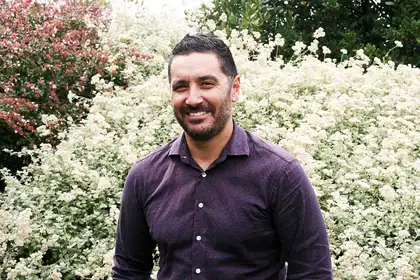
Dr Simon Bennett.
Massey University’s first Māori director of clinical psychology training says excessive emphasis on deficit models of mental wellbeing have been disadvantageous for Māori.
Dr Simon Bennett (Ngāti Whakaue, Patu Harakeke, Kati Waewae) stepped into the Director role this year and says while the negative statistics around Māori mental health and tragically high rates of suicide are well known, a heavy focus on the problems has overshadowed the promotion of Māori solutions.
He believes there’s been a marginalisation of mātauranga Māori (Māori knowledge) from our health system. He says “Resources in the form of tikanga (custom), that we as Māori take for granted, such as whanaungatanga, (kinship) whakatauki, (proverbs) and karakia (prayer) aren’t frequently seen in our mental health services due to a lack of awareness of the important role that culture can play in facilitating good mental health”.
Dr Bennett says the appointment of a Māori as the Director of Clinical Psychology Training is a significant step forward for the profession of clinical psychology in New Zealand. “I’m immensely grateful for this opportunity to contribute to the continual advancement in how we train clinical psychologists to work in Aotearoa. I’m also humbled to be working with a fantastic team in the Clinical Programme at Massey who are absolutely committed to training clinical psychologists with the dual competence to work effectively as psychologists with whānau Māori.” Dr Bennett says psychologists with greater cultural awareness will have the impact of improving outcomes for clients.
Dr Bennett completed his PhD at Massey University in 2011. His research looked at the cultural adaptation of a mainstream psychological intervention by drawing on Māori values, customs and indigenous perspectives. He was a Fulbright Scholar in 2014 which he undertook at the Centers for American Indian and Alaska Native Health in Denver, Colorado.